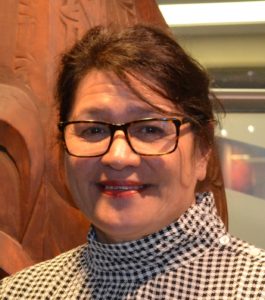‘Nursing will be leading the way in health care towards equity and inclusion at a time when the Government is attempting to dismantle the rights of tangata whenua.’
At a glance
For RNs, the proposed six pou (domains) of competence are:
- Te Tiriti o Waitangi, ōritetanga (equality) and social justice.
- Kawa whakaruruhau and cultural safety.
- Pūkengatanga (skill) and excellence in nursing practice.
- Manaakitanga and people-centredness.
- Whakawhanaungatanga (relationships) and communication.
- Rangatiratanga and leadership.
For ENs, the proposed five pou are:
- Te Tiriti o Waitangi
- Cultural safety
- Knowledge-informed practice
- Professional acccountability and responsibility
- Partnership and collaboration.
See the full proposed changes, here.
Members said:
‘I really love the new pou for the EN and RN competencies and believe they are highly relevant to being a nurse in Aotearoa New Zealand, particularly the very focused pou to actualise Te Tiriti o Waitangi, and other pou to ensure Māori and other are being safely and appropriately cared for within our health system.’
‘There appears to be an unsubstantiated hypothesis that nurses have a sphere of influence to be effective agents of change in regard to social justice, cultural safety and leadership — where is the robust evidence of this that would underpin such assumptions?’
NZNO — Tōpūtanga Tapuhi Kaitiaki o Aotearoa members responded in large numbers on the proposed changes, many saying the leap from 20 to 41 competencies for RNs would be a “huge amount of work”.
However the move towards a more te Tiriti-led, culturally-competent nursing workforce, focused on improving Māori health, was warmly welcomed.
“Nursing will be leading the way in health care towards equity and inclusion at a time when the Government is attempting to dismantle the rights of tangata whenua,” one said.
More competencies — but no more indicators
In December, the Nursing Council released a proposed set of new competencies for both enrolled nurses (ENs) and registered nurses (RNs), which doubles the number of competencies required — but also ditches dozens of “indicators” (performance meaures).
‘We never intend to complicate a system, but we can’t also sit on our hands and think the system’s working.’
Council chief executive Catherine Byrne said a key focus was Te Tiriti o Waitangi and nurses’ role in improving health equity for Māori. Another focus was a more collaborative relationship between RNs and ENs. Consultation ended on February 12 with the council saying it had received a “tremendous” response from nearly 3000 people.
RNs would have 41 competencies across six pou (domains), instead of 20 competencies across four domains (professional responsibility, management of nursing care, interpersonal relationships and “interprofessional” health care/teamwork). But 83 indicators would be ditched.
ENs would have 29 competencies across five pou, instead of 17 competencies across four domains (professional responsibility, provision of nursing care, interpersonal relationships and interprofessional care/teamwork). But 69 indicators would be ditched.
Workload concerns
Concern over the workload of providing evidence for each of the 29 or 41 competencies — and the impact on continuing competency requirements — was the number one issue for members, said NZNO researcher Sue Gasquoine, who drew together NZNO’s highest member response in years for a submission.
“An alternative suggested was assessment of competence against each pou — five for ENs and six for RNs. This would be more enabling and meaningful and creates opportunity for nurses to demonstrate excellence through reflective description.”
‘How do we move some of those deeply entrenched behaviours in the system, and make nurses lift their gaze?’
‘I’d like to be able to say that I understand the current competencies well and that I can readily apply them to practice but it is a huge amount of work to provide a single example for each of the competencies. Increasing the number of competencies will only make this more challenging.’
‘Where are the competencies for management, education, policy and research?’
‘My concern is the proposed new competencies will become a huge barrier to our aged force and our IQNs.’
Nurses were also keen to see the environment — te taiao — and climate change given greater priority, as a key health issue, Gasquoine said.
But members overall expressed “huge respect for the emphasis the proposed changes places on Te Tiriti”, she wrote in the submission.
Change is coming
NZNO kaiwhakahaere Kerri Nuku — who was part of the Nursing Council’s competencies design group for both ENs and RNs — said the proposal “signalled change” and a shift away from institutional racism and other barriers to culturally safe health care for Māori. These had been identified in reports such as the Waitangi Tribunal inquiry into health services for Māori Wai2575, and the 2020 health and disability system review.

“We never intend to complicate a system, but we can’t also sit on our hands and think the system’s working,” Nuku told Kaitiaki.
“How do we move some of those deeply entrenched behaviours in the system, and make nurses lift their gaze — understand the health sector environment, but also be better advocates for change, for the patients.”
Co-chair of the national PDRP (professional development and recognition programmes) coordinators group Diane Bos said the proposed number of competencies and duplication could be a “major barrier” for many.
“If they were going to put that many competencies in, it would take that much longer to write [a peer review].”
But generally, both ENs and RNs loved their new pou — although there were questions over a lack of a leadership pou for ENs who Bos said often showed “clear leadership” across the health sector.

All “loved” that te Tiriti and cultural safety had been given their own pou for the first time, Bos said.
‘Tremendous’ response
Nursing Council projects leader Jane MacGeorge said response to the consultation had been “tremendous” with feedback from 2773 people including 100 written submissions and 1429 completing the survey.
The response showed nurses’ concerns over the number of competencies, and the impact of this on meeting their continuing competency requirements — particularly professional development and recognition programmes (PDRPs), she said.
‘[There is an] assumption that inequity in healthcare is caused by or can be relieved by nurses . . . Such requirements need to be incorporated into national and organisational policy and procedure and, where appropriate, specified in areas where a proven sphere of influence exists e.g. role descriptions for those in senior leadership positions rather than as defining competence for nurse registration.’
‘I like that ENs can take on a leadership/coordination role.’
‘It appears that some of the organisational responsibility for strategy planning and operational policy/procedure/protocol is being transferred into the definition of a registered nursing via the revised competency framework.’
The council would be considering feedback with further consultation on a revised proposal expected mid-year before new competencies were finalised later in the year, MacGeorge said.
Byrne said the council had been guided in its proposal by a range of nursing voices, including NZNO’s EN section, Te Rūnanga o Aotearoa NZNO, professional groups and Māori and Pacific nursing leaders, with a series of wānanga last year.
NZNO members also wanted to see:
- The collaborative team relationship of ENs and RNs better reflected.
- A better defined career pathway across the EN and RN scopes including RN prescribers.
- Inclusion of the term “whakapapa-centred care” in RN competencies, as with ENs, in order to consider physical, emotional, spiritual and cultural needs.
- Greater priority on te taiao — the enviroment — in the face of climate change and its impact on health.
- More accessible language.
Members were concerned that:
- Nurses’ abilities to meet pou six — rangatira and leadership — might be inhibited by their organisation, if leadership opportunities were not available for nurses.
- Employers wouldn’t support and pay for nurses to improve their knowledge of te reo Māori pronunciation and names as well as tikanga (as proposed in pou five).
| Pou | Registered nurses | Enrolled nurses |
|---|---|---|
| One | Te Tiriti o Waitangi, ōritetanga and social justice This pou requires evidence of critical consciousness and nursing practice which gives effect to Te Tiriti o Waitangi and human rights advocacy. Nurses have an ethical responsibility to lead in the elimination of health inequities and the achievement of a health care system that delivers appropriate and equitable healthcare for all. |
Te Tiriti o Waitangi This domain contains competencies that gives effect to Te Tiriti o Waitangi in everyday practice, to support the right of Māori to be Māori and exercise self-determination over their lives, to improve health and wellbeing of Māori and whānau. |
| Two | Kawa whakaruruhau and cultural safety This pou supports the provision of holistic care, and ensures the nurse reflects on their own values, biases, and beliefs, and understands the impact of these on care provision. |
Cultural safety This domain contains competencies to ensure cultural safety in practice. This requires ENs to reflect on their own values, biases, and beliefs, to ensure the rights of Māori, Pacific and diverse population groups to promote equity and inclusion. |
| Three | Pūkengatanga and excellence in nursing practice This pou addresses critical thinking and analysis; use of evidence based and scientific knowledge to underpin practice; and being accountable and taking responsibility for own practice. This includes the use of a range of assessment tools appropriate to the practice environment and diverse populations. |
Knowledge-informed practice This domain contains competencies related to the knowledge and expertise to enable assessment, clinical decision-making, and provision of safe nursing care for individuals, whānau, and communities. |
| Four | Manaakitanga and people- centredness This pou refers to building trusting, compassionate, collaborative relationships with people and whānau, facilitating holistic care focused on collective wellbeing. This includes caring for others to uphold the mana of all concerned (nurse, service, profession, organisation). |
Professional accountability and responsibility This domain contains competencies that relate to the provision of nursing care within professional, ethical, and legal boundaries, that promote safe nursing practice by ensuring the rights, confidentiality, dignity, and respect for people are upheld. |
| Five | Whakawhanaungatanga and communication This pou focuses on establishing relationships through the use of effective and appropriate interpersonal skills and communication strategies. |
Partnership and collaboration This domain contains competencies related to working in partnership and collaboration with individuals, their whānau, communities, and the interprofessional health care team across the life span in all settings. |
| Six | Rangatiratanga and leadership This pou focuses on leadership, professionalism, advocacy, teamwork, and nurses as change agents. Rangatiratanga in the context of nursing practice refers to the inherent potential of all nurses to act as change agents, regardless of seniority or formal leadership positions. Rangatiratanga is exercised when nurses act as independent thinkers, intervene, speak out, advocate, and follow processes to escalate concerns. Rangatiratanga is further demonstrated when nurses are proactive in offering solutions and leading innovative change for improvement. |




